
Find Help
More Items From Ergsy search
-

Should someone with postnatal depression seek professional help?
Relevance: 100%
-
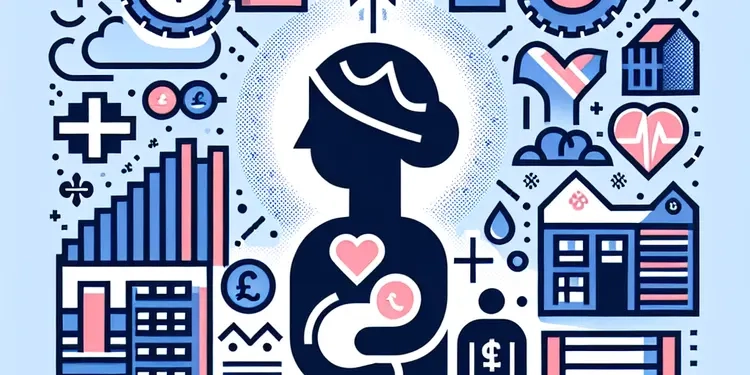
What is postnatal depression?
Relevance: 86%
-
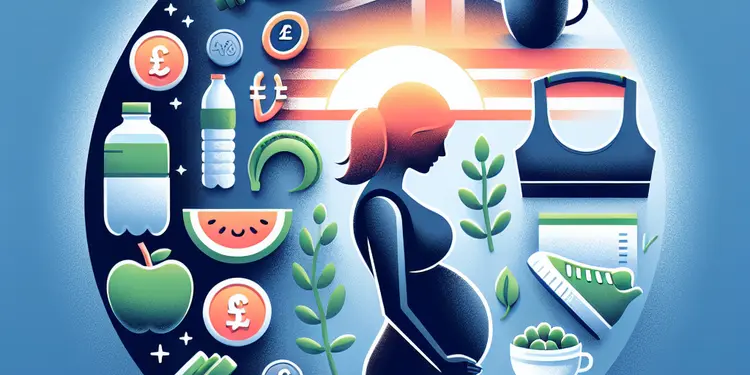
Can lifestyle changes help with postnatal depression?
Relevance: 85%
-
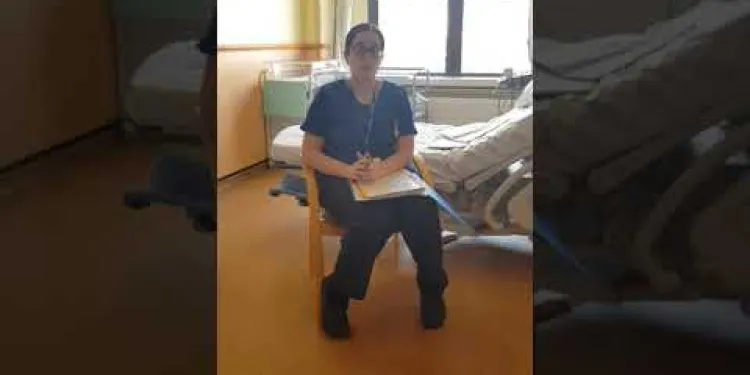
Postnatal Depression
Relevance: 85%
-
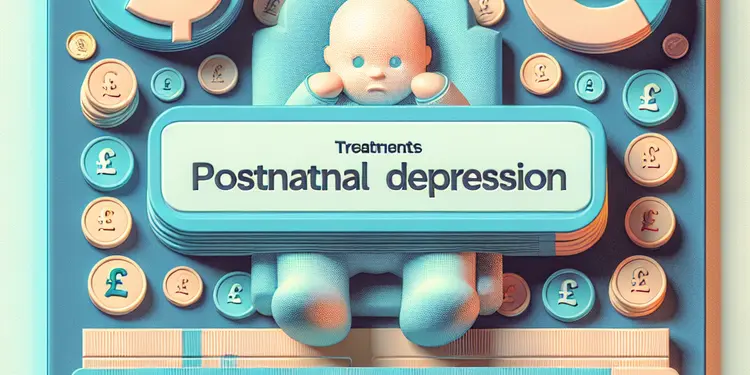
Are there treatments available for postnatal depression?
Relevance: 82%
-
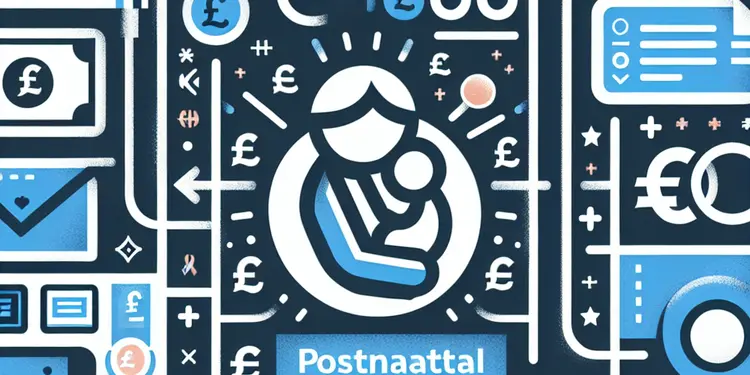
Is postnatal depression preventable?
Relevance: 81%
-
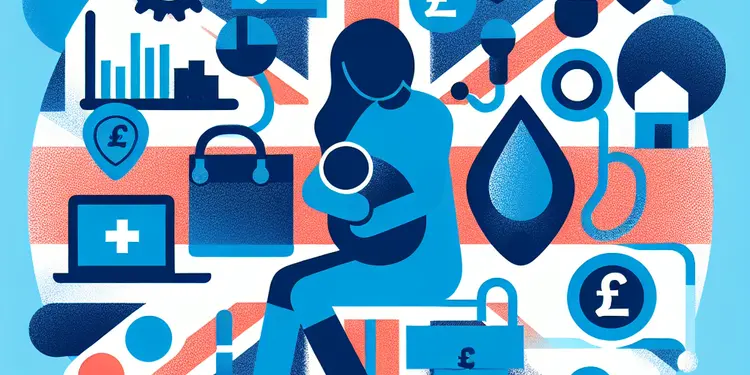
How is postnatal depression diagnosed?
Relevance: 81%
-
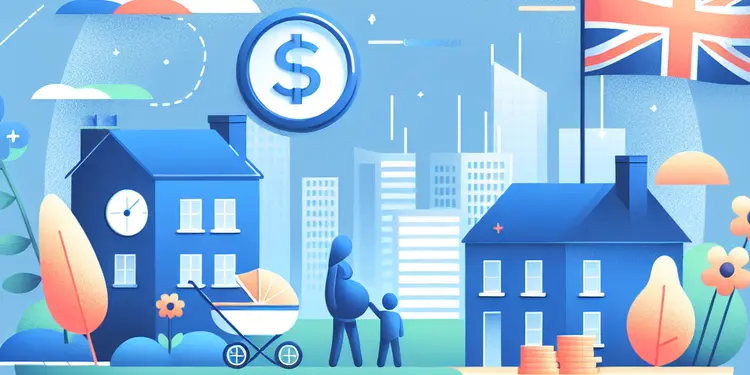
Is postnatal depression a long-term condition?
Relevance: 80%
-

Postnatal Depression - Leanne's Story
Relevance: 79%
-

What causes postnatal depression?
Relevance: 78%
-
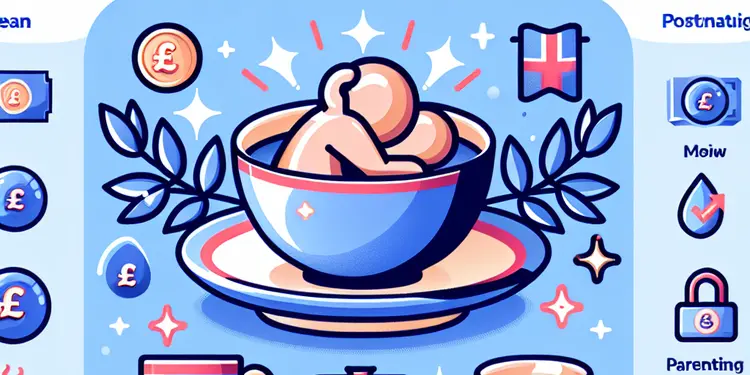
Are there support groups for postnatal depression?
Relevance: 78%
-

Can fathers experience postnatal depression?
Relevance: 77%
-
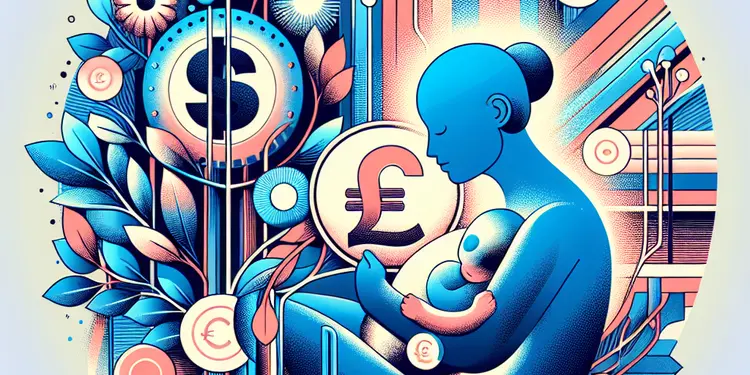
What are the symptoms of postnatal depression?
Relevance: 77%
-
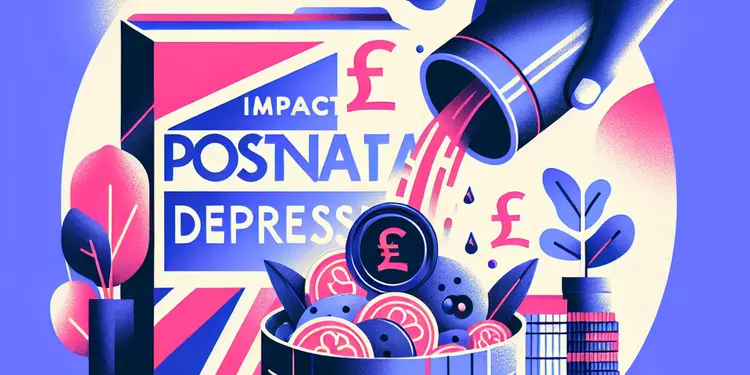
Can diet impact postnatal depression?
Relevance: 75%
-
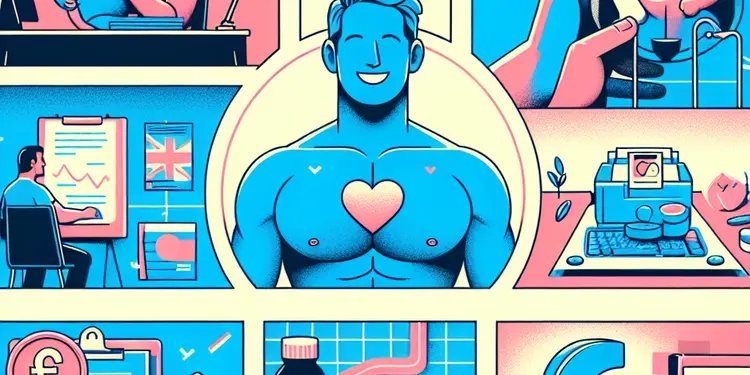
Is medication necessary for treating postnatal depression?
Relevance: 75%
-
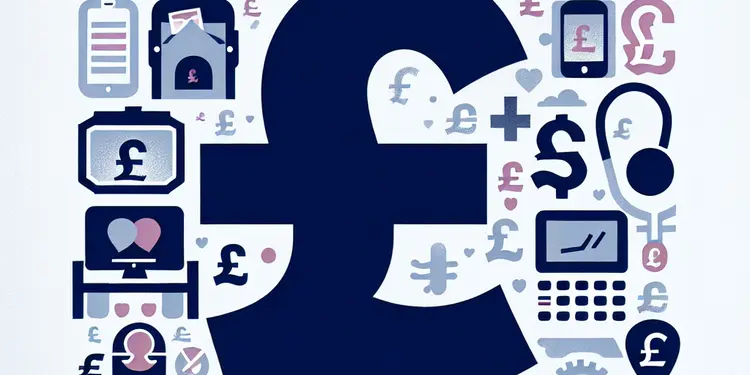
What should I do if I suspect I have postnatal depression?
Relevance: 75%
-
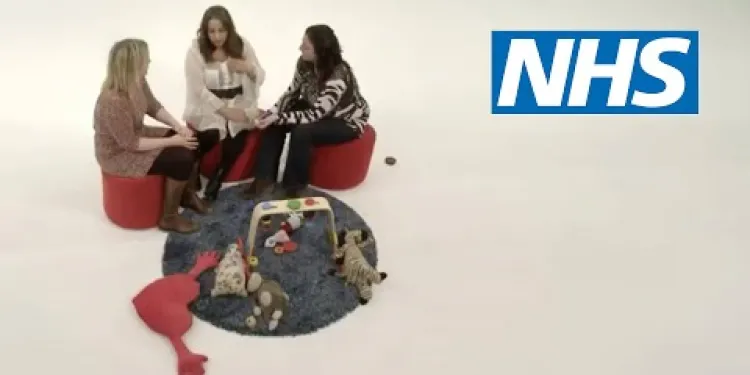
How do I know if I have postnatal depression? | NHS
Relevance: 74%
-

Can postnatal depression affect subsequent pregnancies?
Relevance: 72%
-
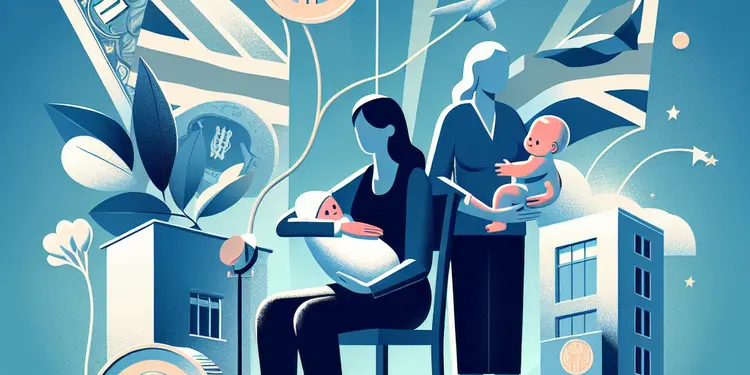
Can postnatal depression recur after treatment?
Relevance: 72%
-
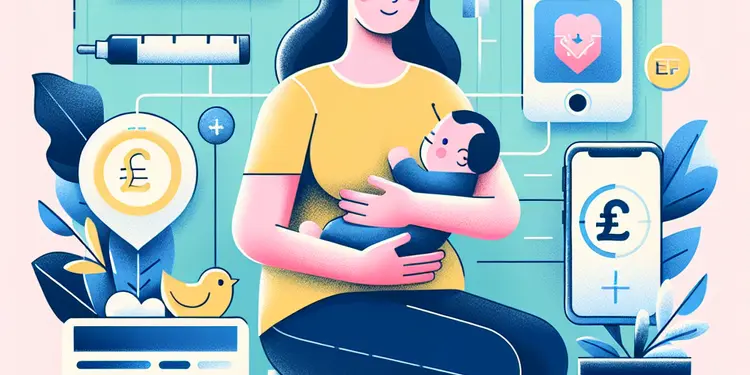
How is postnatal depression different from the 'baby blues'?
Relevance: 72%
-
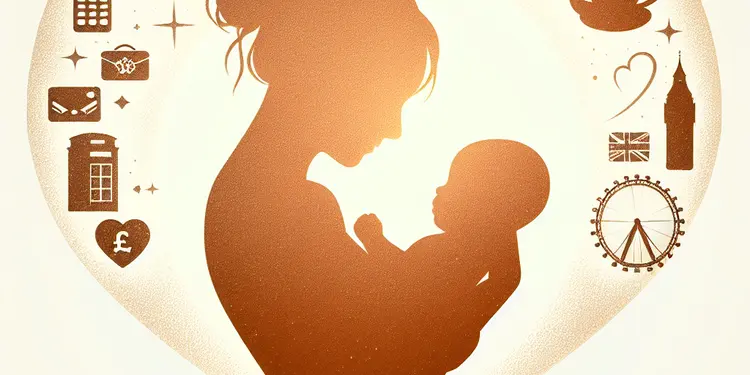
How does postnatal depression affect bonding with the baby?
Relevance: 69%
-
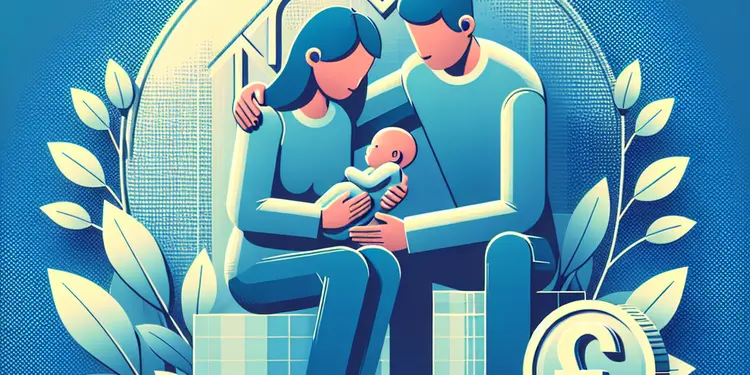
How can family members support someone with postnatal depression?
Relevance: 68%
-
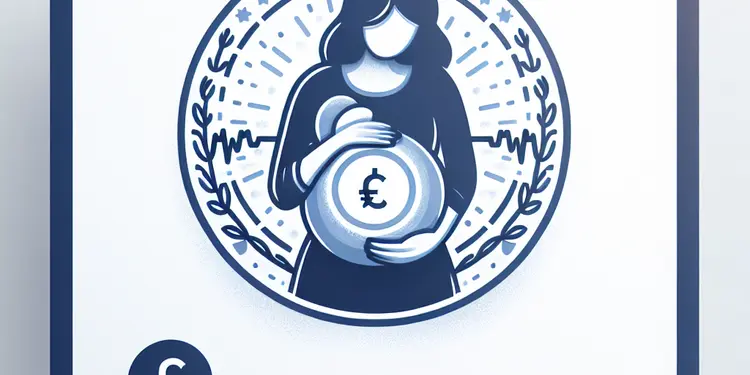
How soon after childbirth can postnatal depression occur?
Relevance: 49%
-
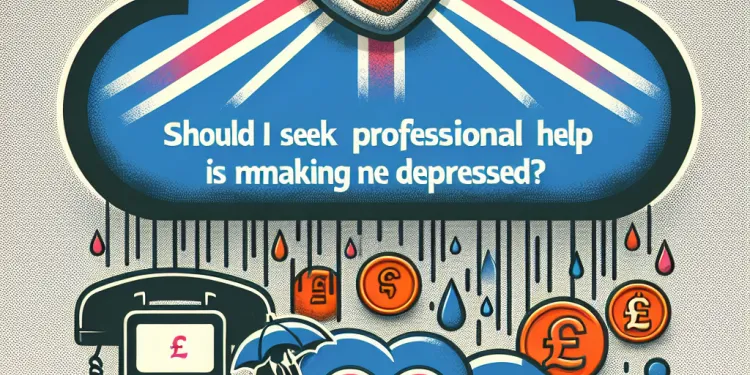
Should I seek professional help if my relationship is making me depressed?
Relevance: 48%
-

Treating anxiety and depression - www.slam.nhs.uk
Relevance: 37%
-
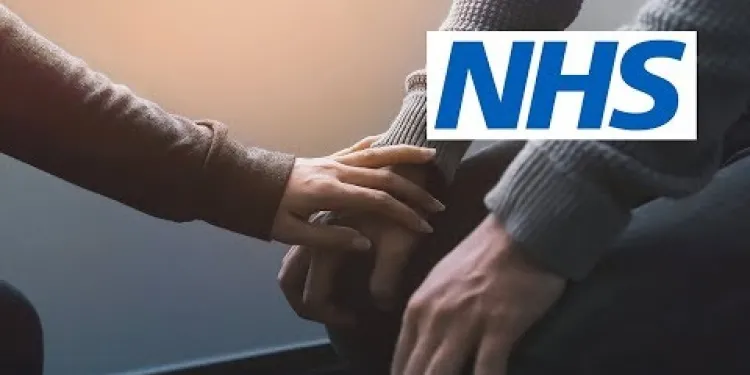
Clinical depression: Lawrence's story | NHS
Relevance: 36%
-
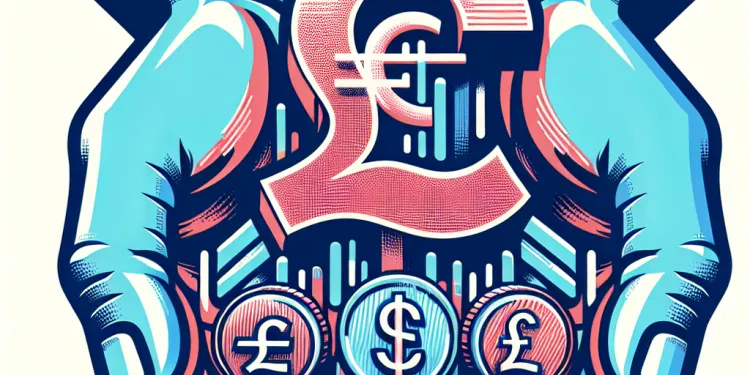
Are there any self-care strategies to cope with relationship-induced depression?
Relevance: 35%
-
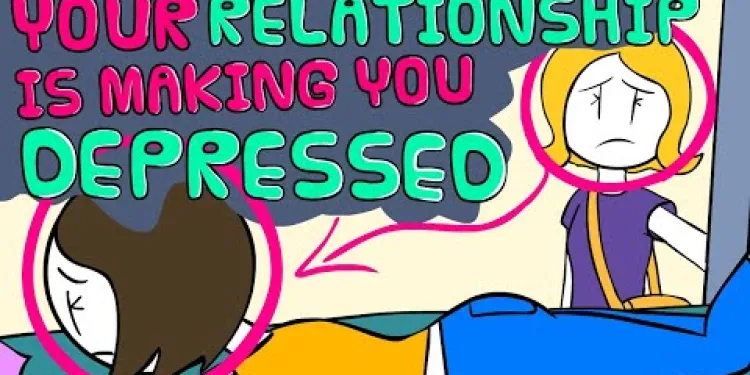
7 Signs Your Relationship is Making You Depressed
Relevance: 34%
-
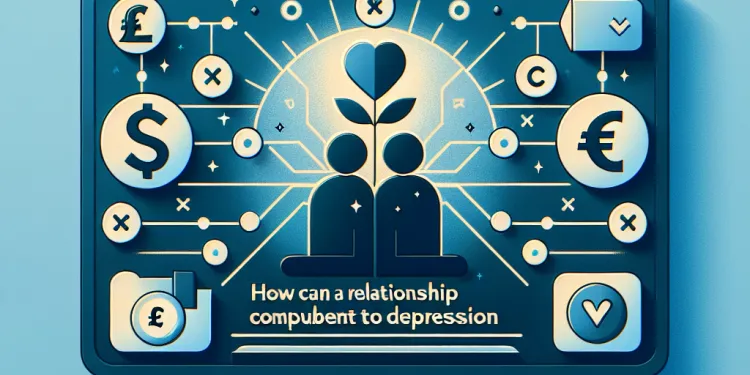
How can a relationship contribute to depression?
Relevance: 33%
-

Can physical symptoms be linked to relationship-induced depression?
Relevance: 33%
-
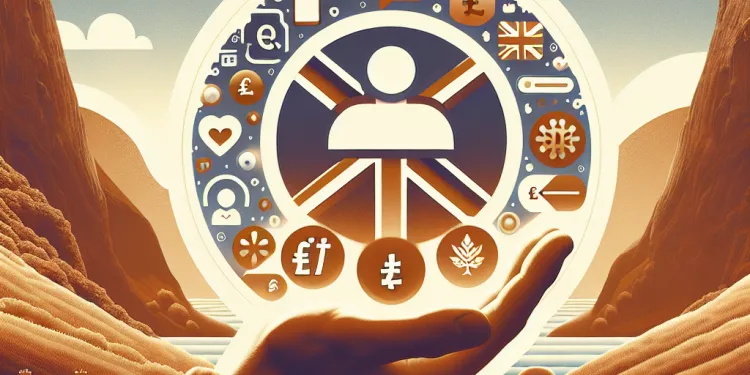
What should I do if my partner dismisses my feelings of depression?
Relevance: 33%
-
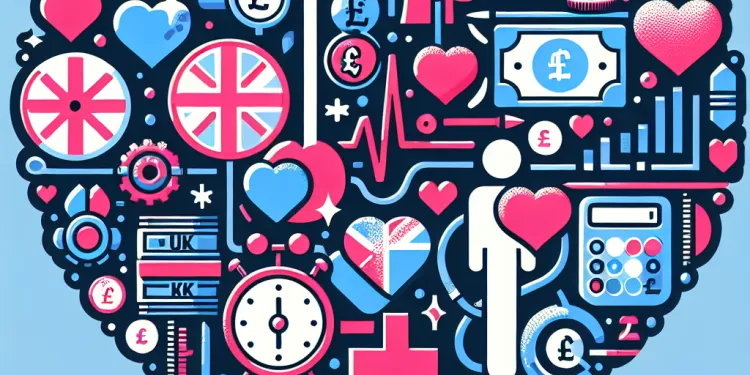
What are the signs that my relationship is making me depressed?
Relevance: 33%
-
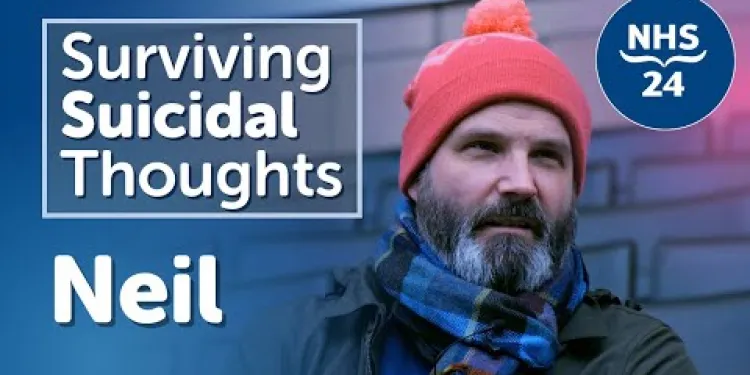
I couldn't celebrate Hibs beating Hearts because I was that depressed
Relevance: 32%
-
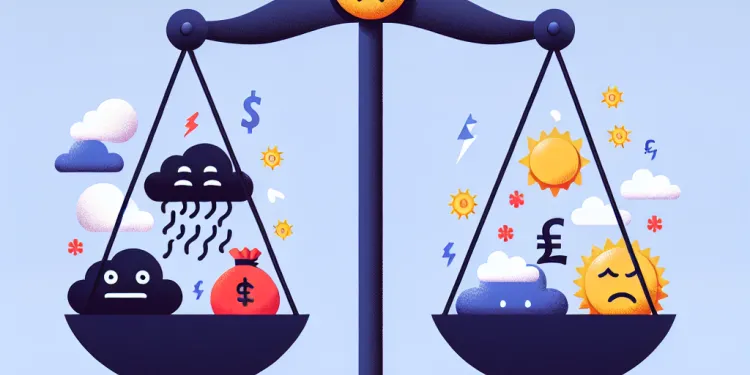
What role do unhealthy dynamics play in causing depression?
Relevance: 30%
-

What is professional negligence?
Relevance: 27%
-

What is the impact of a professional negligence claim on a professional's career?
Relevance: 27%
-
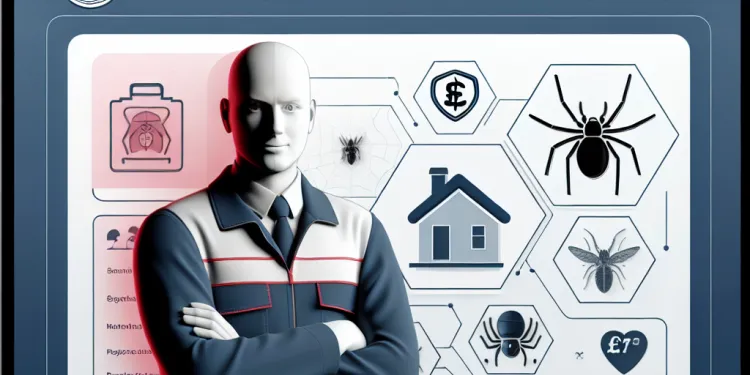
Is professional pest control needed for spiders?
Relevance: 25%
-

Are there professional advisors for inheritance tax planning?
Relevance: 25%
-
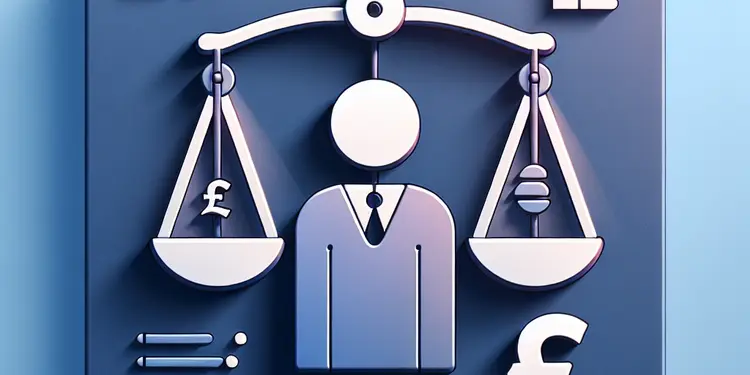
Is a mistake always considered professional negligence?
Relevance: 25%
-
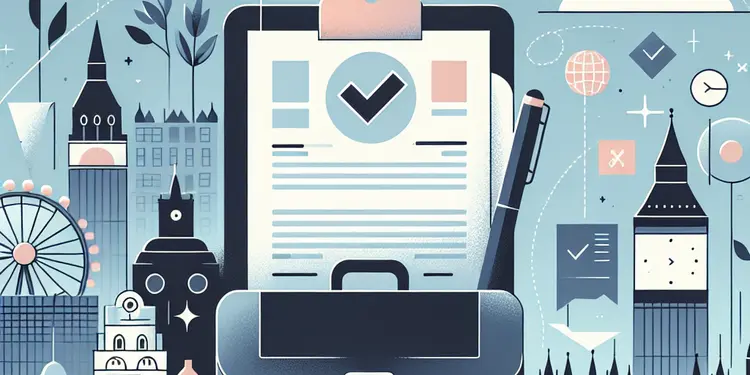
Are professionals insured against negligence claims?
Relevance: 24%
Understanding Postnatal Depression
Postnatal depression (PND) is a type of depression that many parents experience after having a baby. It is a common condition that can affect both mothers and, in some cases, fathers. The symptoms can range from mild to severe and can include feelings of sadness, hopelessness, fatigue, irritability, and difficulty bonding with the baby. Experiencing these emotions can be distressing, but it is important to understand that help is available and seeking professional assistance can significantly improve one's mental health and overall wellbeing.
The Importance of Seeking Professional Help
If someone is experiencing symptoms of postnatal depression, it is crucial to consider seeking professional help. Professional support can come in various forms, such as counseling, therapy, or medication, and it can help address the underlying issues contributing to the depression. Seeking help from a healthcare professional, such as a GP or mental health specialist, can provide an accurate diagnosis and develop an appropriate treatment plan tailored to the individual's needs. Early intervention can lead to better outcomes and prevent symptoms from worsening over time.
Available Support Services in the UK
In the UK, there are numerous support services available for those dealing with postnatal depression. The NHS offers various resources, including talking therapies that can be accessed through local services or self-referral pathways. In addition to NHS services, charities such as PANDAS Foundation and the National Childbirth Trust provide helplines and support groups specifically for postnatal depression. These resources offer invaluable support to individuals and families by providing a platform to share experiences and receive advice.
Breaking the Stigma
One of the barriers to seeking help for postnatal depression is the stigma often associated with mental health issues. Many parents may feel ashamed or guilty about their feelings, fearing that it reflects poorly on their ability to parent. However, it is vital to recognize that postnatal depression is a medical condition and not a reflection of one's character or capability as a parent. Encouraging open conversations about mental health and breaking down these stigmas can lead to more individuals seeking the help they need.
Supporting Loved Ones
If you know someone who may be experiencing postnatal depression, offering your support can make a significant difference. Encourage them to talk about their feelings and reassure them that they are not alone. Suggest accompanying them to appointments or helping them find resources. Being there for someone can provide comfort and help them feel more empowered to seek professional assistance.
Conclusion
Postnatal depression is a serious condition that requires attention and care. Seeking professional help can provide the support and guidance needed to navigate this challenging time. With the right treatment and support, individuals can manage symptoms effectively and improve their quality of life. It is essential to address postnatal depression with the seriousness it deserves, helping individuals and families thrive during the postnatal period.
Understanding Postnatal Depression
Postnatal depression is a type of feeling very sad that parents can have after a baby is born. It is common and can happen to both mums and dads. People might feel really tired, upset, grumpy, or have trouble loving the baby. These feelings can be very hard to deal with, but there is help out there. Getting help from a doctor or talking to someone can make you feel better.
The Importance of Seeking Professional Help
If you think you have postnatal depression, it is important to get help from a doctor or counselor. This help can include speaking to someone who understands, having therapy, or taking medicine. A doctor can help you understand what is happening and give you a plan to feel better. The sooner you get help, the sooner you can start to feel better.
Available Support Services in the UK
In the UK, there are lots of places that can help people with postnatal depression. The NHS has people you can talk to, and there are charities like PANDAS Foundation and the National Childbirth Trust that have phone lines and groups where people can share their stories and get advice. These places want to help you and your family feel better.
Breaking the Stigma
Sometimes, people are scared to ask for help because they feel embarrassed or think they should be able to handle things on their own. But having postnatal depression is not your fault. It is something that can happen to anyone and does not mean you are a bad parent. Talking about mental health can help more people get the help they need.
Supporting Loved Ones
If you know someone with postnatal depression, you can help by listening to them and letting them know they are not alone. You can go with them to see the doctor, or help them find the right people to talk to. Your support can help them feel better and more ready to get help.
Conclusion
Postnatal depression is serious and needs attention. Getting help from a doctor can make things better. With the right help, people can feel happier and take good care of their families. It is important to take postnatal depression seriously so everyone can enjoy this special time with their new baby.
Frequently Asked Questions
What is postnatal depression?
Postnatal depression is a type of mood disorder associated with childbirth, which can affect both sexes but is more common among women. It involves persistent feelings of sadness, fatigue, and anxiety after birth.
How common is postnatal depression?
Postnatal depression affects approximately 1 in 7 women after childbirth and can also occur in fathers or partners.
What are the symptoms of postnatal depression?
Symptoms include feelings of extreme sadness, low energy, anxiety, irritability, and changes in sleep or appetite. Difficulty bonding with the baby is also common.
Why is seeking professional help important for postnatal depression?
Professional help is crucial as untreated postnatal depression can affect the well-being of the mother and child, and can lead to chronic depressive episodes.
Can postnatal depression affect the mother-child relationship?
Yes, postnatal depression can impair a mother's ability to bond with her child, potentially impacting the child's development and emotional health.
Can men experience postnatal depression?
Yes, while less common than in women, men can also experience postnatal depression, often exhibiting symptoms such as irritability, withdrawal, and anxiety.
What types of professionals can assist with postnatal depression?
A variety of professionals can help, including psychiatrists, psychologists, therapists, and sometimes general practitioners with experience in mental health.
Is medication always necessary for treating postnatal depression?
Not always, treatment can involve therapy, lifestyle changes, or medication. A professional can determine the best approach based on individual needs.
What role can therapy play in treating postnatal depression?
Therapy can provide a safe space to express feelings, learn coping strategies, and address any underlying issues contributing to depression.
Are there support groups for postnatal depression?
Yes, support groups can offer emotional support and shared experiences, helping individuals realize they are not alone in their struggles.
Can lifestyle changes help with postnatal depression?
Lifestyle changes such as regular exercise, healthy eating, adequate sleep, and social support can positively impact mood and aid recovery.
What could happen if postnatal depression is left untreated?
Untreated postnatal depression can lead to chronic depression, strained relationships, and severe emotional distress for both mother and child.
Can early intervention improve outcomes for postnatal depression?
Early intervention can significantly improve recovery outcomes, reducing the severity and duration of symptoms, and promoting better overall health.
Should I seek help if I'm unsure whether I have postnatal depression?
Yes, if you have concerns about your mental health, seeking professional advice can provide clarity and support regardless of diagnosis.
How can partners support someone with postnatal depression?
Partners can provide emotional support, assist with daily tasks, encourage professional help, and ensure that the individual has rest and self-care.
Is it possible to prevent postnatal depression?
While no sure way to prevent it exists, managing stress, maintaining a support network, and seeking prompt help for any mental health issues can reduce risk.
Can postnatal depression recur with subsequent pregnancies?
Yes, individuals with a history of postnatal depression may be at increased risk in subsequent pregnancies, underscoring the importance of proactive management.
Is it normal to feel ashamed about having postnatal depression?
Feelings of shame are common but unwarranted; postnatal depression is a medical condition, not a personal failure, and seeking help is a sign of strength.
Does seeking help mean I'm not a good parent?
No, seeking help demonstrates a commitment to your health and your child's well-being, reflecting strong parenting values.
What first steps should be taken if one suspects postnatal depression?
Contact a healthcare provider for an evaluation and discuss symptoms; they can recommend appropriate resources or referrals to specialists.
What is postnatal depression?
Sometimes, after having a baby, a person can feel very sad. This is called postnatal depression. It can make someone feel tired, upset, or worried for a long time. Getting help from a doctor or talking to someone you trust can be really helpful.
Here are some ways to feel better:
- Talk to a friend or family member.
- Try to rest when the baby is sleeping.
- See a doctor for advice or medicine.
After having a baby, some people feel very sad or worried. This is called postnatal depression. It happens more often to mums but can happen to dads too. It makes people feel tired and anxious.
How many people get sad after having a baby?
After having a baby, about 1 in 7 mums can feel very sad and worried. Dads or partners can feel this way too.
What are the signs of feeling sad after having a baby?
Signs of this are feeling very sad, feeling very tired, feeling worried, feeling grumpy, and changing how much you eat or sleep. It can also be hard to feel close to your baby.
Why is getting help from a doctor important for feeling sad after having a baby?
When a mom feels very sad after having a baby, it is important to talk to a doctor or a nurse.
This can help her feel better and keep her healthy.
Doctors and nurses know how to help her. They can give her medicine or other help to make her feel better.
Talking to someone about her feelings can really help. There are support groups and counselors who listen and help moms feel better.
Always ask for help if you feel very sad after having a baby. You are not alone!
Getting help from a doctor is very important. If a mum feels sad after having a baby and doesn't get help, it can hurt both her and the baby. It can make the mum feel sad for a long, long time.
If you or someone you know is feeling sad after having a baby, talk to a doctor. They can help you feel better.
Can feeling sad after having a baby affect how a mom feels about her child?
Yes, when a new mom feels very sad, it can make it hard for her to connect with her baby. This can affect how the baby grows and feels.
Here are some things that can help:
- Talk to someone: Moms can talk to a friend, family member, or doctor about how they feel.
- Take breaks: It's okay for moms to take small breaks to rest and relax.
- Join a group: Some moms find it helpful to join a group where they can meet other moms.
Can men feel sad after a baby is born?
Yes, it is not as common in men, but men can also feel very sad after having a baby. This is called postnatal depression. Men might feel grumpy, want to be alone, or feel very worried.
If you need help, you can talk to a doctor. It's important to share your feelings. Also, writing in a journal or talking to someone you trust can help too.
Who can help with feeling sad after having a baby?
After having a baby, some people feel very sad. Here are some people who can help:
- Doctors: They know a lot about health and can give medicine if needed.
- Nurses: They can talk to you and help you feel better.
- Therapists or Counselors: They can listen to how you feel and give you advice.
If you feel sad, you can talk to these people. They want to help you feel happy again. It can also help to talk to friends or family. They care about you and can support you too. You are not alone.
Many different people can help. These include:
- Doctors for mental health like psychiatrists
- People who listen and help, called psychologists
- People who talk with you to make you feel better, called therapists
- Sometimes regular doctors who know about mental health
Tools and tips that can help:
- Talk to someone you trust
- Write down your feelings in a diary
- Try deep breathing when you feel upset
- Use apps that help with feeling calm, like meditation apps
Do you need medicine to help with feeling sad after having a baby?
Sometimes, getting better means talking to someone, changing how you live, or taking medicine. A doctor can help decide what is best for you.
How can talking to a therapist help with feeling sad after having a baby?
Going to therapy can help you feel better. You can talk about your feelings in a safe place. A therapist can teach you ways to cope with tough times. Therapy can also help find out why you feel sad.
Is there help for feeling sad after having a baby?
Yes, support groups can help. They give emotional support and let people share their stories. This helps people see they are not alone in what they are going through.
Can changing how you live help with feeling sad after having a baby?
Feeling sad after having a baby is called postnatal depression.
Here are some ways that might help you feel better:
- Talk to friends or family about how you feel.
- Try to sleep and rest whenever you can.
- Eat healthy food and drink plenty of water.
- Go for a walk or do some light exercise.
- Ask for help when you need it.
You can also try to use helpful things like:
- Mobile apps that remind you to relax.
- Listening to calm music.
- Joining groups with other new parents to share feelings.
Remember, it is important to talk to a doctor or nurse if you feel very sad. They can help you.
Living a healthy life can make you feel better and help you get better. Here are some things you can do:
- Exercise often. Try to move your body every day. You can walk, dance, or play outside.
- Eat healthy foods. Try to eat fruits, vegetables, and foods that are good for you.
- Get enough sleep. Make sure you sleep well every night.
- Spend time with friends and family. They can help you feel happier.
If you need help with reading or understanding, you can use these tools:
- Ask someone you trust to explain it to you.
- Use apps that read text out loud.
- Look for videos on the topic with easy explanations.
What happens if someone does not get help for feeling sad after having a baby?
If a new mom feels very sad and does not get help, it might not go away. This can make it harder to take care of both herself and her baby.
Here are some things that can help:
- Talking to a doctor, nurse, or someone you trust
- Joining a support group for new moms
- Learning to relax and rest when the baby is sleeping
If a new mum does not get help for feeling very sad after having a baby, it can make her feel sad for a long time. It can also make it hard for her to get along with other people and make both her and the baby feel very upset.
Can helping early make postnatal depression better?
Getting help early can make you feel better faster. It can also make the symptoms less bad and help you stay healthy.
Should I ask for help if I think I might have postnatal depression?
If you feel sad or worried after having a baby, it is a good idea to talk to someone. Asking for help is important. A doctor or nurse can tell you if you have postnatal depression.
Talking to a friend or family can also help you feel better. You do not have to do this alone.
Try to take care of yourself. Get enough sleep, eat healthy food, and take some time to relax when you can.
There are also apps and websites that can help you understand your feelings. They can give you tips on how to feel better. Remember, getting help is a brave and smart thing to do.
If you are worried about your feelings or thoughts, talking to a doctor or a therapist can help. They can listen and give you advice, even if you don't have a specific diagnosis.
How can partners help someone with postnatal depression?
Postnatal depression is when new mums feel very sad after having a baby.
Here are ways partners can help:
- Listen: Be there to listen when they need to talk.
- Help with baby: Share taking care of the baby.
- Encourage rest: Help them get enough sleep and rest.
- Go to doctor: Offer to go with them to the doctor.
- Show love: Show them that you care and love them.
Tools and techniques that can help:
- Use a calendar: Write down doctor’s visits and important dates.
- Phone reminders: Set reminders to help them remember to rest.
- Support groups: Join a group for new parents to share feelings.
Partners can help by being kind and caring, helping with chores, saying it's okay to see a doctor or counselor, and making sure the person gets plenty of rest and takes care of themselves.
Can we stop feeling very sad after having a baby?
There is no certain way to stop it. But you can lower the risk by:
- Keeping stress low
- Having friends and family to help you
- Getting help quickly if you feel bad
Can you get postnatal depression again with more pregnancies?
Yes, if someone had postnatal depression before, they might get it again when they have another baby. It is important to get help early.
Is it okay to feel bad about having postnatal depression?
It's normal to feel many emotions after having a baby. Some parents feel sad or worried, which can be called postnatal depression.
If you feel bad about having these feelings, it's okay. You are not alone. Many people feel the same way.
Talking to someone you trust can help. You can talk to your family, friends, or a doctor.
There are tools and techniques that can help too, like calm breathing or writing down your feelings.
Feeling ashamed is normal, but you shouldn't feel bad about it. Postnatal depression is like being sick. It's not your fault. Asking for help is a strong and brave thing to do.
Does asking for help mean I'm not a good parent?
It's okay to ask for help. Asking for help does not mean you are a bad parent. Everyone needs help sometimes. Asking for help is a smart thing to do.
Here are some things that can help you:
- Talk to a friend or family member.
- Join a parent support group.
- Read simple parenting books.
- Use apps that give parenting advice.
Remember, you are doing your best, and that's what matters.
No, asking for help shows you care about your health and your child's happiness. It means you are a good parent.
What to do if you think you have postnatal depression?
Here is what you can do:
- Talk to someone you trust. This could be a friend or family member.
- See a doctor. They can help you feel better.
- Use a notebook to write down your feelings. This can help you understand them.
- Try relaxing activities like drawing, listening to music, or going for a walk.
Remember, you are not alone. Many people can help you feel better.
Talk to a doctor or nurse about how you feel. They can help you find the right people or places to make you feel better.
Useful Links
This website offers general information and is not a substitute for professional advice.
Always seek guidance from qualified professionals.
If you have any medical concerns or need urgent help, contact a healthcare professional or emergency services immediately.
Some of this content was generated with AI assistance. We’ve done our best to keep it accurate, helpful, and human-friendly.
- Ergsy carfully checks the information in the videos we provide here.
- Videos shown by Youtube after a video has completed, have NOT been reviewed by ERGSY.
- To view, click the arrow in centre of video.
- Most of the videos you find here will have subtitles and/or closed captions available.
- You may need to turn these on, and choose your preferred language.
- Go to the video you'd like to watch.
- If closed captions (CC) are available, settings will be visible on the bottom right of the video player.
- To turn on Captions, click settings .
- To turn off Captions, click settings again.
More Items From Ergsy search
-

Should someone with postnatal depression seek professional help?
Relevance: 100%
-

What is postnatal depression?
Relevance: 86%
-

Can lifestyle changes help with postnatal depression?
Relevance: 85%
-

Postnatal Depression
Relevance: 85%
-

Are there treatments available for postnatal depression?
Relevance: 82%
-

Is postnatal depression preventable?
Relevance: 81%
-

How is postnatal depression diagnosed?
Relevance: 81%
-

Is postnatal depression a long-term condition?
Relevance: 80%
-

Postnatal Depression - Leanne's Story
Relevance: 79%
-

What causes postnatal depression?
Relevance: 78%
-

Are there support groups for postnatal depression?
Relevance: 78%
-

Can fathers experience postnatal depression?
Relevance: 77%
-

What are the symptoms of postnatal depression?
Relevance: 77%
-

Can diet impact postnatal depression?
Relevance: 75%
-

Is medication necessary for treating postnatal depression?
Relevance: 75%
-

What should I do if I suspect I have postnatal depression?
Relevance: 75%
-

How do I know if I have postnatal depression? | NHS
Relevance: 74%
-

Can postnatal depression affect subsequent pregnancies?
Relevance: 72%
-

Can postnatal depression recur after treatment?
Relevance: 72%
-

How is postnatal depression different from the 'baby blues'?
Relevance: 72%
-

How does postnatal depression affect bonding with the baby?
Relevance: 69%
-

How can family members support someone with postnatal depression?
Relevance: 68%
-

How soon after childbirth can postnatal depression occur?
Relevance: 49%
-

Should I seek professional help if my relationship is making me depressed?
Relevance: 48%
-

Treating anxiety and depression - www.slam.nhs.uk
Relevance: 37%
-

Clinical depression: Lawrence's story | NHS
Relevance: 36%
-

Are there any self-care strategies to cope with relationship-induced depression?
Relevance: 35%
-

7 Signs Your Relationship is Making You Depressed
Relevance: 34%
-

How can a relationship contribute to depression?
Relevance: 33%
-

Can physical symptoms be linked to relationship-induced depression?
Relevance: 33%
-

What should I do if my partner dismisses my feelings of depression?
Relevance: 33%
-

What are the signs that my relationship is making me depressed?
Relevance: 33%
-

I couldn't celebrate Hibs beating Hearts because I was that depressed
Relevance: 32%
-

What role do unhealthy dynamics play in causing depression?
Relevance: 30%
-

What is professional negligence?
Relevance: 27%
-

What is the impact of a professional negligence claim on a professional's career?
Relevance: 27%
-

Is professional pest control needed for spiders?
Relevance: 25%
-

Are there professional advisors for inheritance tax planning?
Relevance: 25%
-

Is a mistake always considered professional negligence?
Relevance: 25%
-

Are professionals insured against negligence claims?
Relevance: 24%


